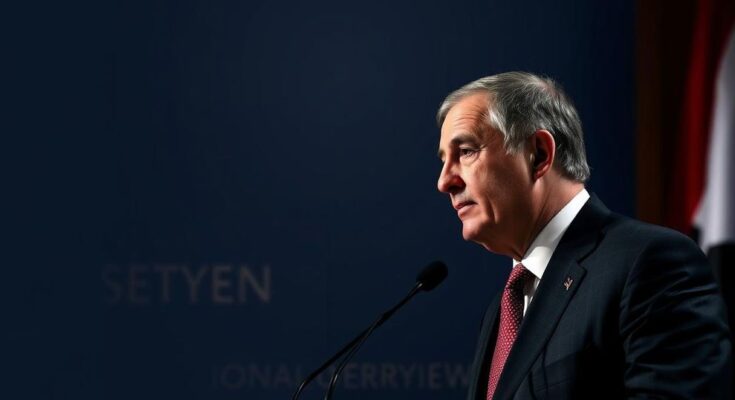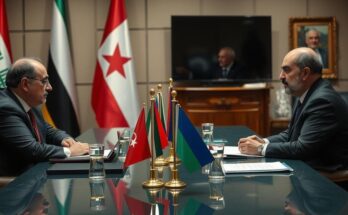Prime Minister Sheikh Mohammed bin Abdulrahman bin Jassim Al Thani announced a lack of ceasefire negotiation talks in Gaza during a press conference following the GCC-EU Summit in Brussels. He emphasized the need to stop aggression against Lebanon and reiterated the importance of a two-state solution for resolving conflicts in the region. The summit underscored the collaborative efforts of the EU and GCC in addressing Middle Eastern issues and highlighted support for initiatives led by the U.S., Qatar, and Egypt.
In a recent press conference, Prime Minister and Minister of Foreign Affairs H. E. Sheikh Mohammed bin Abdulrahman bin Jassim Al Thani conveyed that there has been a significant lack of communication regarding ceasefire negotiations in the Gaza Strip over the past weeks. He emphasized the absence of talks or engagement from any parties involved, stating, “Regarding the prospects of negotiations, we are moving in the same circle amid silence from all parties.” This statement was made during the conclusion of the Gulf Cooperation Council (GCC)-European Union (EU) Summit held in Brussels, where he acknowledged the importance of the summit in the current geopolitical landscape. The Prime Minister underscored that the primary concern of all stakeholders is to cease hostilities against the Lebanese population. Furthermore, he reiterated that a sustainable resolution to the ongoing regional conflicts hinges upon the implementation of a two-state solution. The summit, marking the inaugural Gulf-European gathering since the establishment of official relations in 1989, facilitated crucial discussions on the Middle East, particularly focusing on Lebanon and Gaza. Following the summit, leaders from the EU and GCC reaffirmed their backing for the efforts by the United States, Qatar, and Egypt in striving to establish a ceasefire in Gaza, while also advocating for the cessation of escalatory actions in Lebanon.
The ongoing conflict in Gaza has escalated tensions in the region, drawing international attention and calls for peace. The involvement of various stakeholders, including the Gulf Cooperation Council, the European Union, the United States, Qatar, and Egypt, reflects the complexity of the situation and the multifaceted efforts required to achieve a ceasefire. The significance of the GCC-EU Summit lies not only in the discussions held but also in the collaboration between these two regions that began in 1989. The summit serves to highlight shared interests and the urgent need for dialogue in resolving ongoing conflicts in the Middle East, particularly in light of the humanitarian crises affecting Lebanon and Gaza.
The remarks of Prime Minister Sheikh Mohammed bin Abdulrahman bin Jassim Al Thani signify the challenges faced in reaching a ceasefire agreement amidst ongoing violence in the Gaza Strip. The GCC-EU Summit has presented an opportunity for dialogue, yet it is clear that without proactive engagement from all parties involved, the prospects for peace remain dim. The commitment to support efforts from leading nations indicates a unified stance towards achieving a stable and peaceful resolution, with the two-state solution being emphasized as a critical pathway forward.
Original Source: thepeninsulaqatar.com




